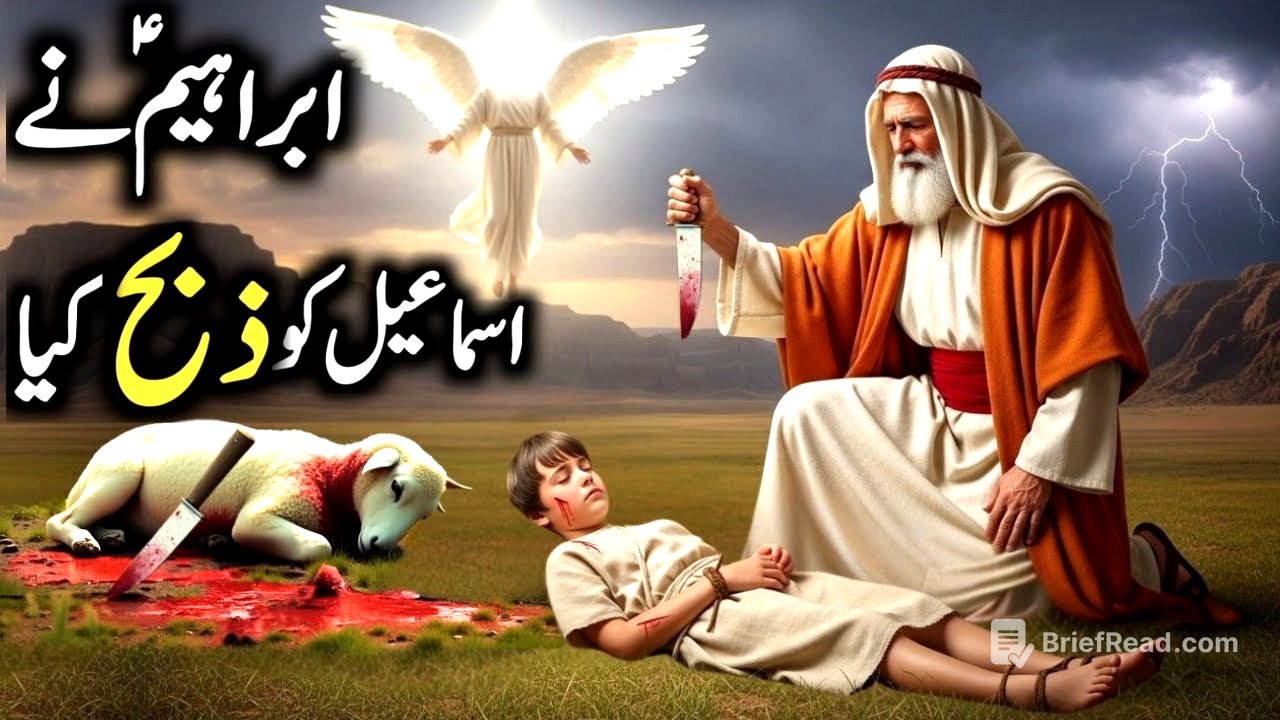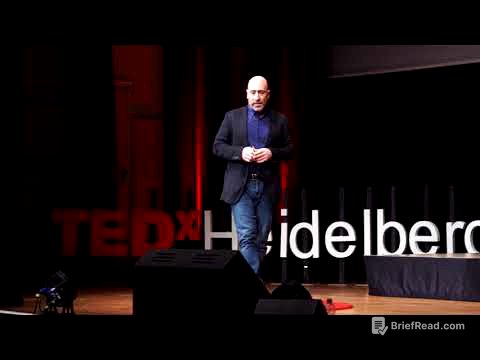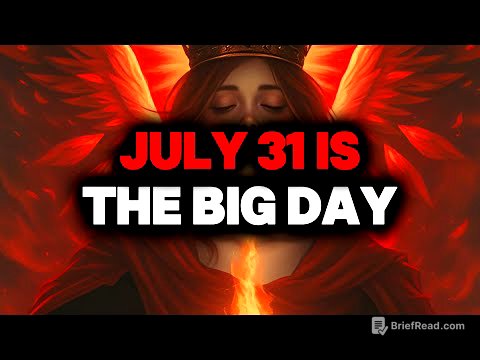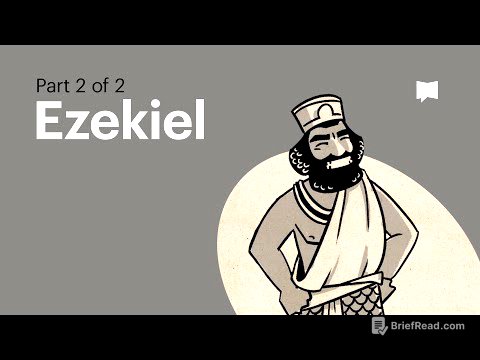TLDR;
This video recounts the story of Prophet Ibrahim (peace be upon him) and his unwavering faith in Allah, highlighting the immense sacrifices he made, including leaving his wife and son in the desert and his willingness to sacrifice his son, Ismail. It emphasizes the themes of faith, obedience, and the ultimate reward for those who trust in Allah.
- Prophet Ibrahim's unwavering faith and obedience to Allah's commands.
- The miraculous provision of Zamzam water in the desert.
- The willingness to sacrifice what is most precious for the sake of Allah.
- The establishment of the tradition of sacrifice (Qurbani) in Islam.
Introduction: Prophet Ibrahim's Sacrifices [0:00]
The video introduces Prophet Ibrahim (peace be upon him) as a prophet who faced numerous trials and made great sacrifices for Allah. It mentions his miraculous escape from the fire set by Namrud and his departure from his father's home due to his faith. Ibrahim's journey led him to Egypt, where he married Hazrat Hajra, and eventually to Palestine.
The Birth of Ismail and the Divine Command [0:38]
Prophet Ibrahim, at the age of 84, was blessed with a son named Ismail after years of praying. Overjoyed, he showered his son with love and affection. However, this joy was short-lived as Allah commanded him to separate from his wife, Hajra, and their child, leaving them in a deserted land.
Leaving Hajra and Ismail in the Desert [2:21]
Guided by the angel Jibraeel, Ibrahim took Hajra and Ismail to the desolate land of Arabia, near present-day Mecca. Despite his anguish, Ibrahim followed Allah's command and left them there with little resources. Hajra questioned his decision, but upon learning it was Allah's will, she accepted it with unwavering faith, trusting in Allah's protection.
Hajra's Struggle and the Miracle of Zamzam [6:52]
Alone in the desert with her infant son, Hajra faced immense hardship. When their water supply ran out, she desperately searched for water, running between the hills of Safa and Marwa. In her despair, Allah sent the angel Jibraeel, who caused a spring of water to gush forth from the ground beneath Ismail's feet, which became known as the well of Zamzam.
Settlement and Ibrahim's Visit [12:33]
The Zamzam well attracted a passing caravan, who sought permission from Hajra to settle nearby. She agreed, and soon a community grew around the well. After a year, Allah allowed Ibrahim to visit his wife and son, but only briefly. He met them while standing, unable to dismount his camel, and then returned to Palestine, leaving them once again in Allah's care.
The Dream and the Sacrifice [16:50]
Years later, Ibrahim had a recurring dream in which he was commanded to sacrifice his most precious possession for Allah. Understanding that this meant his son Ismail, he prepared to fulfill Allah's command. He traveled to Mecca and informed Ismail of the dream, who willingly submitted to Allah's will.
The Test and the Divine Ransom [19:14]
As Ibrahim prepared to sacrifice Ismail, Satan tried to dissuade him, as well as Hajra and Ismail, but they all remained steadfast in their faith. At the site of sacrifice, Ibrahim laid Ismail down and prepared to carry out the act. However, Allah intervened and replaced Ismail with a ram, thus fulfilling the sacrifice and sparing Ismail's life.
The Legacy of Sacrifice [23:13]
Ibrahim's willingness to sacrifice his son became a symbol of ultimate devotion and obedience to Allah. The tradition of sacrificing animals (Qurbani) during Eid al-Adha commemorates this event. Muslims around the world sacrifice animals and distribute the meat to the poor, relatives, and their own families, following the example of Ibrahim's sacrifice and the teachings of Islam.









